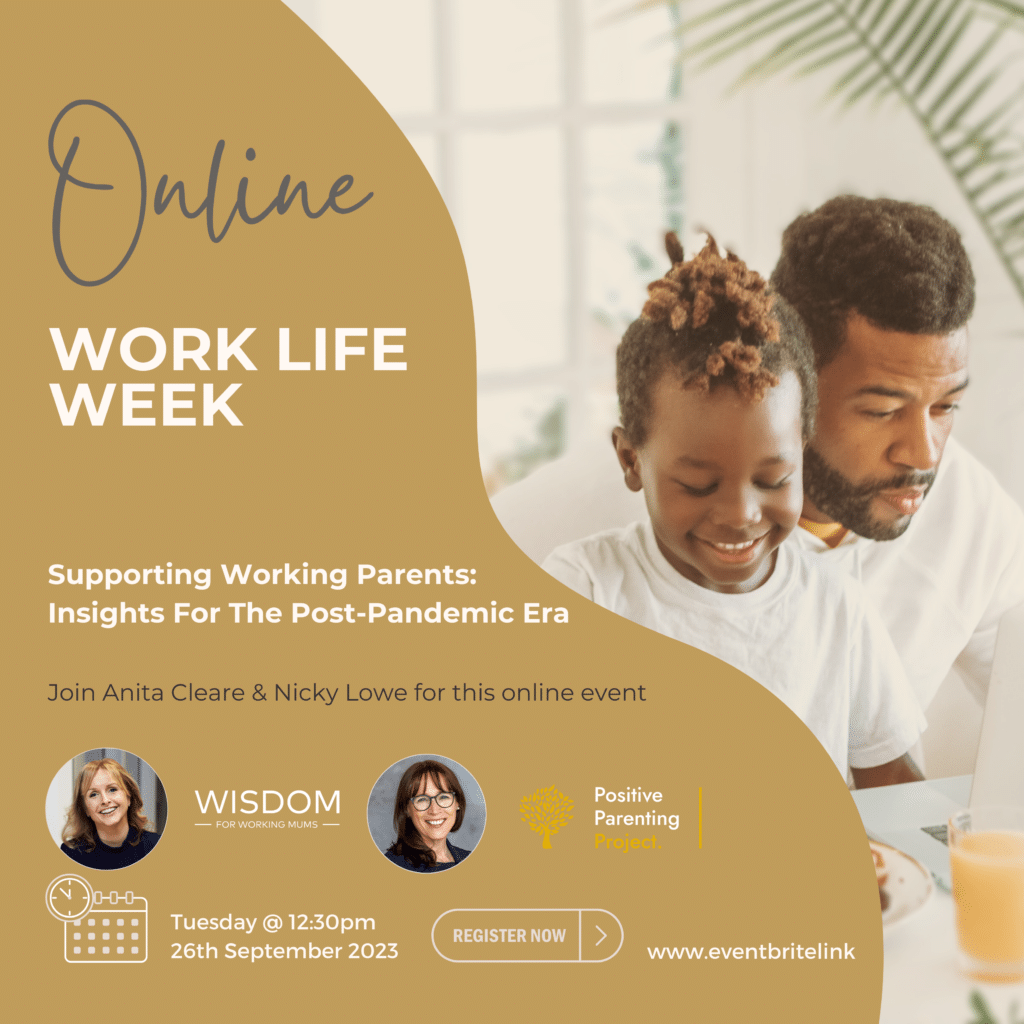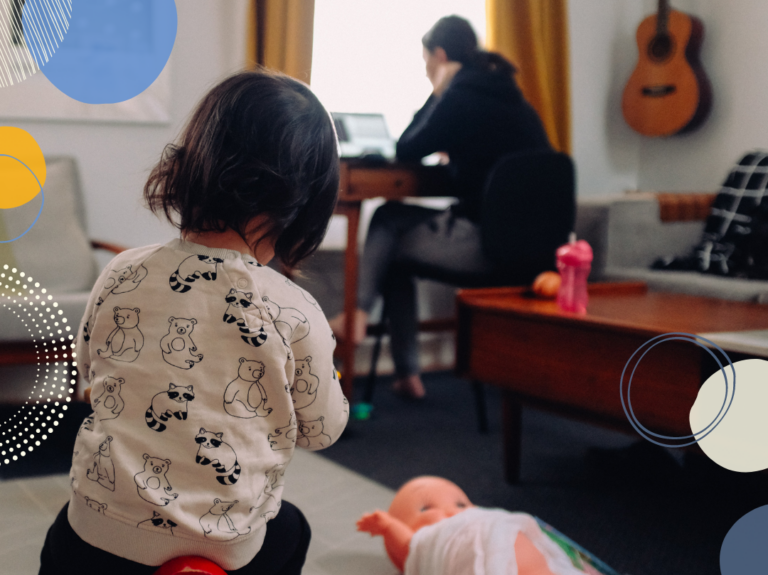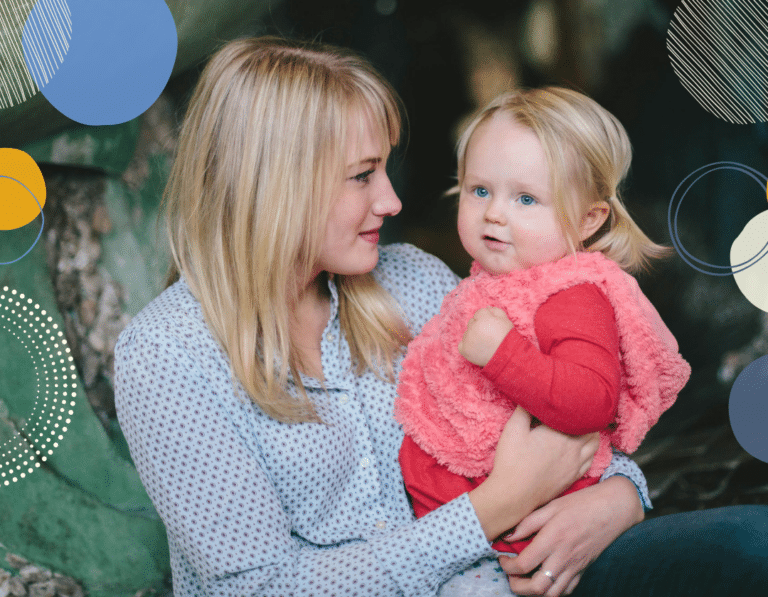Resetting work/parenting boundaries post-pandemic
The Covid pandemic led to one of the biggest and most sudden changes we have ever seen when it comes to working practices, most especially for people who were traditionally office-based. The biggest change, of course, was the instant switch to working from home. With lines blurred between work and home, work/parenting boundaries dissolved and we suddenly had to develop brand new habits and routines.
And, boy, working parents did our best to make it work! We liaised with our teams and partners hour by hour that so childcare and home-schooling was covered. We started each online meeting with a warning that the kids might interrupt us (even changing nappies, emptying potties and teaching long division during zoom calls). We did an incredible job at rising to that challenge, oftentimes at the cost of our own wellbeing.
Now, as the pandemic recedes, it feels like a good time for working parents to start reclaiming balance and rethinking work/parenting boundaries. The pandemic may have been declared officially over, but many of the habits developed during that time of crisis remain in place.
Pandemic work habits
Some of these are habits of thinking. For example, during the pandemic, we had no choice but to combine work with childcare (or home-schooling). We had to learn to cope – and we found a way to cope. But because we pushed our boundaries so far, we also reset the bar and created a new set of expectations, such as:
- Parents should be able to cope with kids and work in the same place at the same time.
- I need to put myself on hold and meet the priority needs of work and children first.
Now that the pandemic is over, this feels like a good time to think about which of our pandemic work/parenting habits we want to keep (because they are helpful) and which are no longer serving us well.
What follows is not an explanation of how we all just need to get back to the office. Far from it. I’m not going to presume to tell you where your work/parenting boundaries should be. But I’d like to start you thinking about whether some of your pandemic thought patterns and routines might not be helpful for you going forward.
Does being at home more make us better parents?

Watch the recording here.
Humans love looking on the bright side. Even in lockdown, unable to leave our homes, we searched for the upsides. At least we got to see our children more. There was a general assumption that just ‘being around more’ for children is a good thing.
But being physically present doesn’t necessarily mean we meet children’s needs better (especially if we are parenting on autopilot while we work, or parking kids on digital devices to keep them quiet). It takes more than just our physical presence to build a relationship with a child.
Ask yourself some tough questions. Does working from home mean that the stress of work seeps into your home more? (When we have high levels of stress, it’s much harder for us to be calm and consistent with our children. We are much more likely to snap at them when they get things wrong or to give in to their demands against our better judgment.)
Or does working from home mean that you are more able to switch into parent-mode and capitalise positively on extra time with your children?
- Which days do you enjoy your children most? Are those the same days that you feel like a ‘good’ parent?
- Which days are you calmest? What are the factors that influence that?
- Under which circumstances are you most likely to be parenting on autopilot, or to over-use screens as entertainment for children, or to have elevated stress levels?
Only you know the answers. I have been amazed at how many parents have told me in the last six months that they enjoy their children more on the days they are office-based. While others say they can’t imagine how they managed when they used to have to work outside the home. And there is a whole cohort of parents who have never known parenting before Covid.
Has crisis parenting redefined work/parenting boundaries?
So many of our current work habits came about when we were in crisis mode. During the pandemic, many parents got up early to work before their children woke up. We did drops-offs and pick-ups while taking Teams calls on our phones. We juggled deadlines and enjoyed being in the house for bath time rather than fuming in traffic or despairing on a platform at yet another cancelled train.
The fact that we rose to the extraordinary crisis of the pandemic using extraordinary means does not mean that all these habits should just become normalised or that these are the best work/parenting boundaries for you or your family now. Some of them may be – but I worry that parents have ended up feeling like we should be able to cope without help or that being a good parent means not needing help – which just isn’t true.
Having realistic expectations is one of the key principles of positive parenting. If we have unrealistic expectations we set up ourselves and our children to fail and we add extra fuel to our stress levels. The pandemic blew our expectations of ourselves out of the water. Not all of these expectations deserve still to be lingering around.
- I should be able to do it all
- Other parents have managed this, I should be able to cope
- I should be able to get everything done
- I shouldn’t put myself first
- I shouldn’t ask for help
If the thought of reclaiming balance and resetting work/parenting boundaries strikes a chord with you, perhaps the first place to start is to have a think about your own shoulds & shouldn’ts. Which of your crisis habits and thought patterns are genuinely still serving you well?
You might also like to read:






